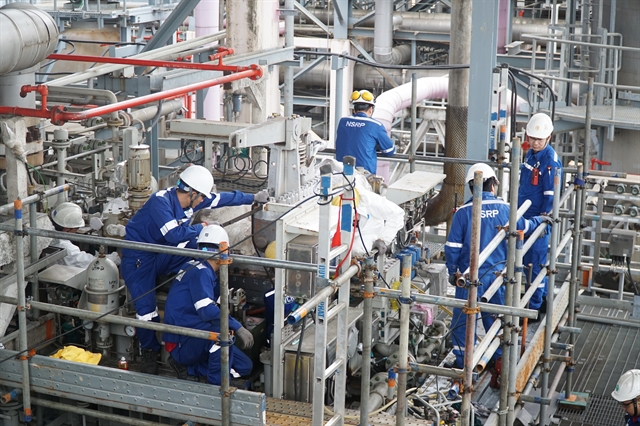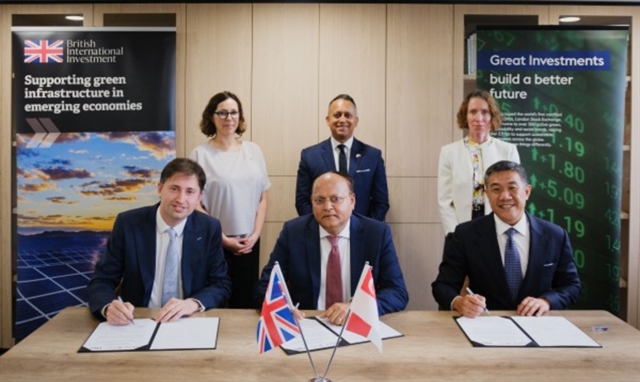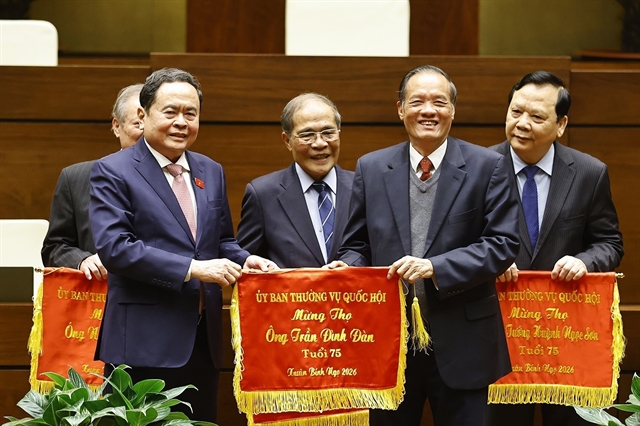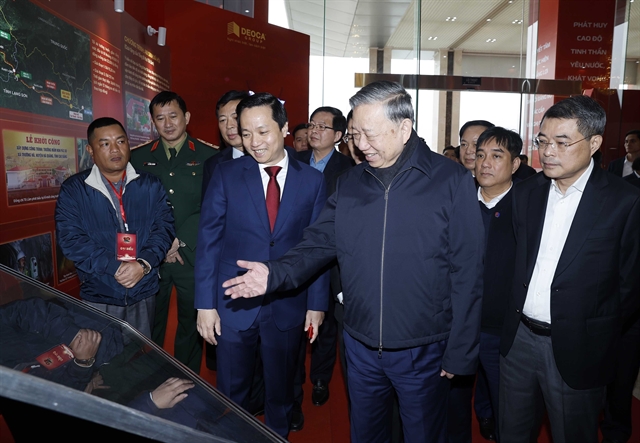 bizhub
bizhub

A new utility-scale renewable energy platform aims to build a 500 MW portfolio of greenfield renewable energy projects across selected Southeast Asian markets, including Việt Nam.

|
| The launching ceremony of the Sustainable Asia Renewable Assets, a new utility-scale renewable energy platform. – Photo Courtesy of British International Investment |
HCM CITY -- A new utility-scale renewable energy platform, Sustainable Asia Renewable Assets (SARA), has been set up jointly by British International Investment (BII), a UK development finance institution and impact investor, FOMO, a Dutch entrepreneurial development bank, and SUSI Partners, a specialist manager of energy transition infrastructure investments.
Established within the SUSI Asia Energy Transition Fund (SAETF), the platform aims to build a 500 MW portfolio of greenfield renewable energy projects across selected Southeast Asian markets, including Việt Nam, by the end of SAETF’s fund life.
The initial focus of this co-investment platform will be on getting greenfield projects into construction and operation. There are also plans for SARA to develop its own proprietary pipeline of projects across Southeast Asia to create a scalable and independent renewable power platform.
The Đầm Nại wind farm in Việt Nam, which SUSI acquired in October 2024, will become SARA’s cornerstone asset.
BII and FMO are investing US$70 million and $50 million respectively through co-investment commitments to SARA and top-up commitments to the SAETF.
Complemented by further commitments to SAETF from existing and new investors, SUSI has more than doubled the size of its Southeast Asia-focused strategy from $120 million to $259 million including direct co-investments. The funds are solely dedicated to sustainable energy infrastructure projects in Southeast Asia.
Due to Southeast Asia’s growing position as a global manufacturing and industry hub, the region is projected to account for more than a quarter of global energy demand growth until 2035, according to the International Energy Agency (IEA).
Given that nearly 80 per cent of Southeast Asia’s rise in energy demand has been met by fossil fuels since 2010, the climate impact per dollar invested in the region’s energy transition is among the highest globally.
With a presence in Singapore since 2019, SUSI has been an early mover in the Southeast Asian energy transition. After closing SAETF in 2023 at $120 million, the fund was reopened in 2024 based on strong deal flow and demand from LPs.
SAETF’s current portfolio focuses on utility-scale renewable energy projects as well as distributed generation and energy efficiency projects with commercial and industrial customers across emerging Southeast Asian markets.
To date, the fund has invested in Việt Nam, the Philippines, Thailand, and Cambodia. – VNS




